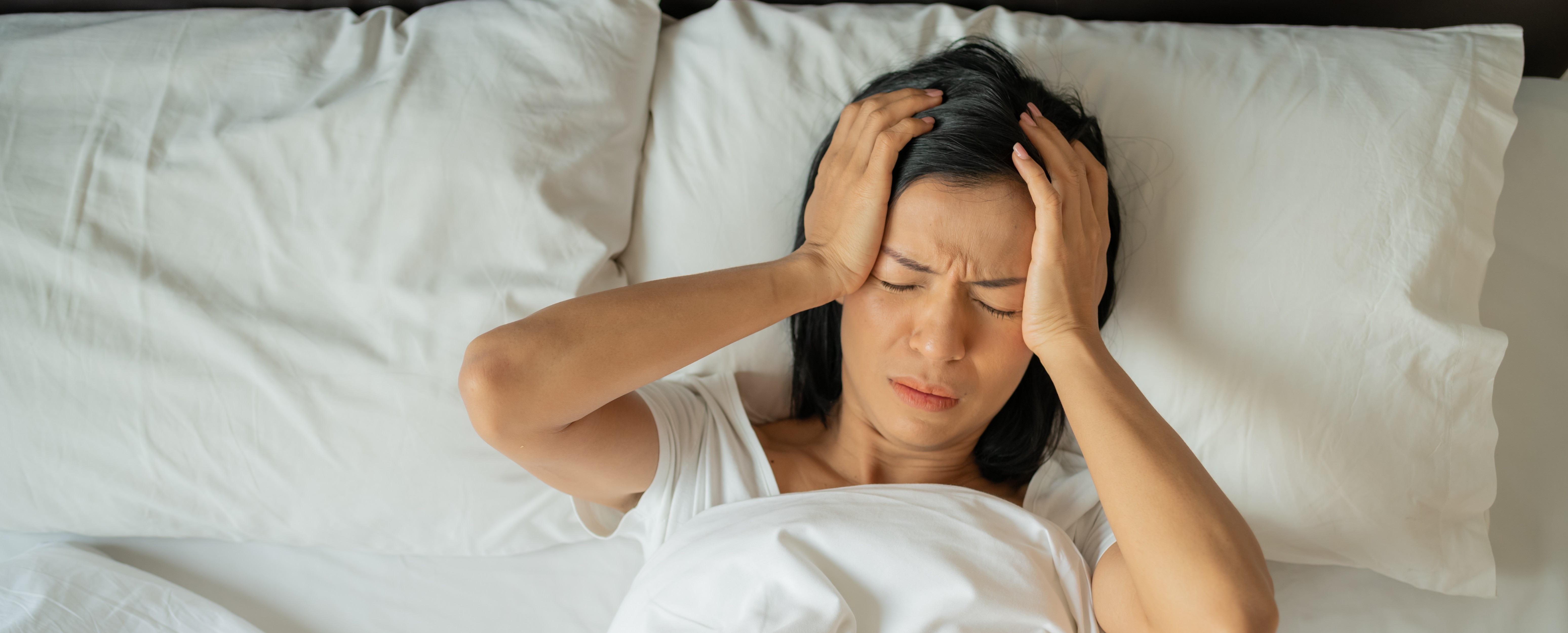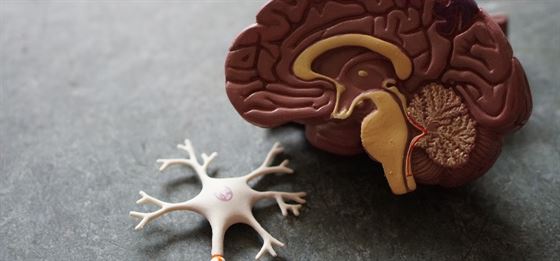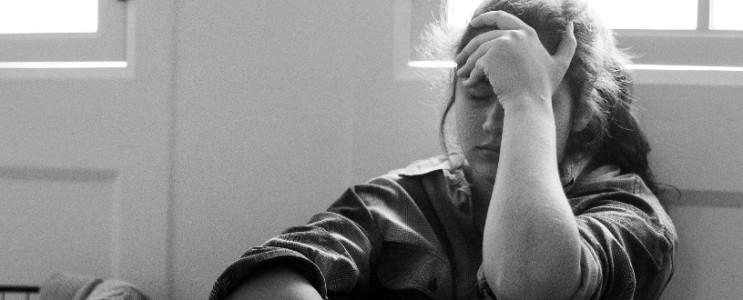
Sleep Disorders

Sleep Disorders
Did you know that we spend one-quarter to one-third of our life sleeping? Sleep is a process in which a shift in consciousness accompanies important physiological changes. Sleep is an essential aspect of our overall well-being, playing a crucial role in maintaining physical and mental health. However, for many individuals, achieving restful sleep can be a challenge due to various sleep disorders. Sleep disorders involve problems with the quality, timing, and amount of sleep, which result in daytime distress and impairment in functioning. Their cause may be physiological or psychological, but they can lead to disturbed sleep, thoughts, emotions and behaviours. Sleep disorders affect sleep quality, timing, or duration and impact a person’s ability to function while awake. There are several types of sleep disorders, each with its own set of sleep disorder symptoms. Here are some common sleep disorders and their associated sleep disorder symptoms.
Sleep Disorder Symptoms
The sleep disorders symptoms vary depending on the type of disorder. However, some common sleep disorder symptoms include:
- Daytime sleepiness: Feeling excessively tired during the day, even after enough sleep.
- Difficulty falling or staying asleep: Taking more than 30 minutes to fall asleep, waking up during the night, or waking up too early in the morning.
- Unrefreshing sleep: Feeling tired or groggy even after getting enough sleep.
- Snoring: Snoring loudly or making gasping sounds during sleep.
- Restless legs: An uncomfortable sensation in the legs that makes it difficult to fall asleep or stay asleep.
- Unusual movements during sleep: Sleepwalking, sleep talking, or sleep eating.
- Changes in mood or behavior: Irritability, anxiety, or depression.
- Problems with concentration or memory: Difficulty focusing, remembering things, or making decisions.
Types of Sleep Disorders & Sleep Disorder Symptoms:
Insomnia
Insomnia is a common sleep disorder characterized by difficulty falling asleep, staying asleep, or experiencing non-restorative sleep despite adequate opportunity. It can be caused by various factors such as stress, anxiety, depression, or lifestyle choices. Chronic insomnia can have significant impacts on daily functioning, mood, and overall well-being. Individuals with insomnia may find it difficult to concentrate, make sound decisions, and manage their emotions effectively.
Sleep Apnea
Sleep apnea is a disorder in which breathing repeatedly stops and starts during sleep. There are two main types: obstructive sleep apnea, caused by the relaxation of throat muscles, and central sleep apnea, where the brain fails to signal the muscles to breathe. Sleep apnea can lead to fragmented sleep, loud snoring, and daytime fatigue. Untreated sleep apnea is associated with serious health issues such as hypertension and cardiovascular problems.
Nightmare Disorder
Nightmare disorder involves frequent and distressing nightmares that significantly disrupt sleep. These nightmares often involve intense fear, anxiety, or horror and can lead to difficulty falling back asleep. Nightmare disorder can be linked to trauma, stress, or certain medications.
Night terrors
Night terrors, on the other hand, are episodes of intense fear, screaming, and flailing during sleep. Unlike nightmares, individuals experiencing night terrors may not fully wake up and often have no memory of the episode. Night terrors are more common in children but can persist into adulthood.
Sleepwalking
Sleepwalking, or somnambulism, is a sleep disorder characterised by walking or performing complex activities during sleep. It usually occurs during the non-REM (rapid eye movement) stage of sleep and can be triggered by factors like sleep deprivation or certain medications. Sleepwalkers are often unaware of their actions and may have limited or no memory of the event.
Narcolepsy
Narcolepsy is a neurological disorder that affects the brain's ability to regulate sleep-wake cycles. Individuals with narcolepsy may experience sudden and uncontrollable episodes of sleep during the day, as well as cataplexy (sudden loss of muscle tone), hallucinations, and sleep paralysis. The exact cause of narcolepsy is not well understood, but it is thought to involve a combination of genetic and environmental factors. Narcolepsy can severely impact an individual's ability to function in daily life, affecting work, school, and social interactions.
Restless Leg Syndrome
Restless leg syndrome (RLS) is a neurological disorder characterised by an overwhelming urge to move the legs, particularly at night when trying to fall asleep. It is characterised by uncomfortable sensations in the legs, often described as tingling, crawling, or itching, leading to an irresistible urge to move the legs. RLS typically worsens during periods of rest or inactivity, making it challenging to fall asleep. The exact cause of RLS is not known, but it has been linked to both genetic and environmental factors.
Circadian Rhythm Disorder
Circadian rhythm disorders involve disruptions to the body's natural sleep-wake cycle, often resulting in sleep difficulties. Conditions like delayed sleep phase syndrome, advanced sleep phase syndrome, and irregular sleep-wake rhythm fall under this category. These disorders can lead to insomnia, excessive daytime sleepiness, and difficulties in maintaining a regular daily schedule. These disorders can manifest in various ways, including delayed sleep phase syndrome (difficulty falling asleep and waking up early), advanced sleep phase syndrome (early sleepiness and early waking), and jet lag (temporary sleep disruption caused by rapid travel across time zones).
Hypersomnolence
Hypersomnolence refers to excessive daytime sleepiness, characterised by an overwhelming desire to sleep during the day, regardless of the amount of sleep obtained the previous night. Conditions like narcolepsy, sleep apnea, and certain neurological disorders can contribute to hypersomnolence, impacting an individual's ability to function effectively during waking hours.
Common Causes and Risk Factors of Sleep Disorder Symptoms:
- Genetics: Some sleep disorders, such as narcolepsy and insomnia, may have a genetic component.
- Medical Conditions: Chronic conditions like diabetes, cardiovascular disease, and respiratory disorders can contribute to sleep disturbances.
- Mental Health: Anxiety, depression, and other mental health disorders are often linked to insomnia and other sleep-related issues.
- Lifestyle Factors: Poor sleep hygiene, irregular sleep schedules, and excessive use of electronic devices before bedtime can disrupt sleep patterns.
Strategies to Manage Sleep Deprivation from Sleep Disorders
Fortunately, sleep deprivation is a manageable condition. By implementing simple lifestyle changes and addressing underlying medical issues, individuals can improve their sleep quality and reap the benefits of a well-rested body and mind. Here are some effective strategies to manage sleep deprivation:
Establish a Regular Sleep Schedule: Set a consistent bedtime and wake-up time, even on weekends, to regulate your body's natural sleep-wake cycle.
Create a Relaxing Bedtime Routine: An hour before bed, wind down by dimming the lights, avoiding screen time, and engaging in calming activities like reading or taking a warm bath.
Optimize Your Sleep Environment: Ensure your bedroom is dark, quiet, and cool to promote restful sleep.
Limit Caffeine and Alcohol: Avoid caffeine and alcohol close to bedtime, as they can interfere with sleep.
Regular Exercise: Engage in regular physical activity, but avoid strenuous workouts close to bedtime.
Manage Stress: Effective stress management techniques, such as yoga, meditation, or deep breathing, can improve sleep quality.
Seeking Professional Help
If you suspect you may have sleep disorder symptoms, it is crucial to consult with a healthcare professional for proper diagnosis and treatment. Through a comprehensive evaluation, including sleep history, physical examination, and sleep studies, the underlying cause of your sleep problems can be identified. Treatment options for sleep disorders vary depending on the specific condition and may involve lifestyle modifications, behavioural therapy, medication, or a combination of approaches.
Sleep disorder symptoms can significantly impact an individual's quality of life and overall health. Recognising the sleep disorder symptoms and seeking timely intervention is crucial for effective management. Whether through lifestyle modifications, medical treatments, or therapeutic interventions, various options are available to address sleep disorders and promote restful, rejuvenating sleep. If you or someone you know is experiencing persistent sleep disturbances, consulting with a mental healthcare professional is the first step towards a healthier and more restful night's sleep.
Articles
Build your awareness and get inspired with our researched articles on how you can strengthen your well-being
Popular Topics
An OTP has been sent to the email address
provided.
Please check your Inbox and Spam folders.

What Would You Like to Speak with a Specialist About?
Mental Fitness Journey starts Now!
Chearful Connects you with Top-tier Qualified Wellness specialists for the Price of a cup of Coffee!

Next Steps
- A Client Team member will reach out to you to schedule a session with the most suitable specialist.
- You will receive an email with a 10% Discount Code* for your 1st session.
- We invite you to Explore the Platform & Sign Up today! *Upto a maximum of $10 discount on a session purchased




 3188 Read
3188 Read



.jpg)








.png)

.jpg)

.jpg)



.jpg)






























.jpg)
























